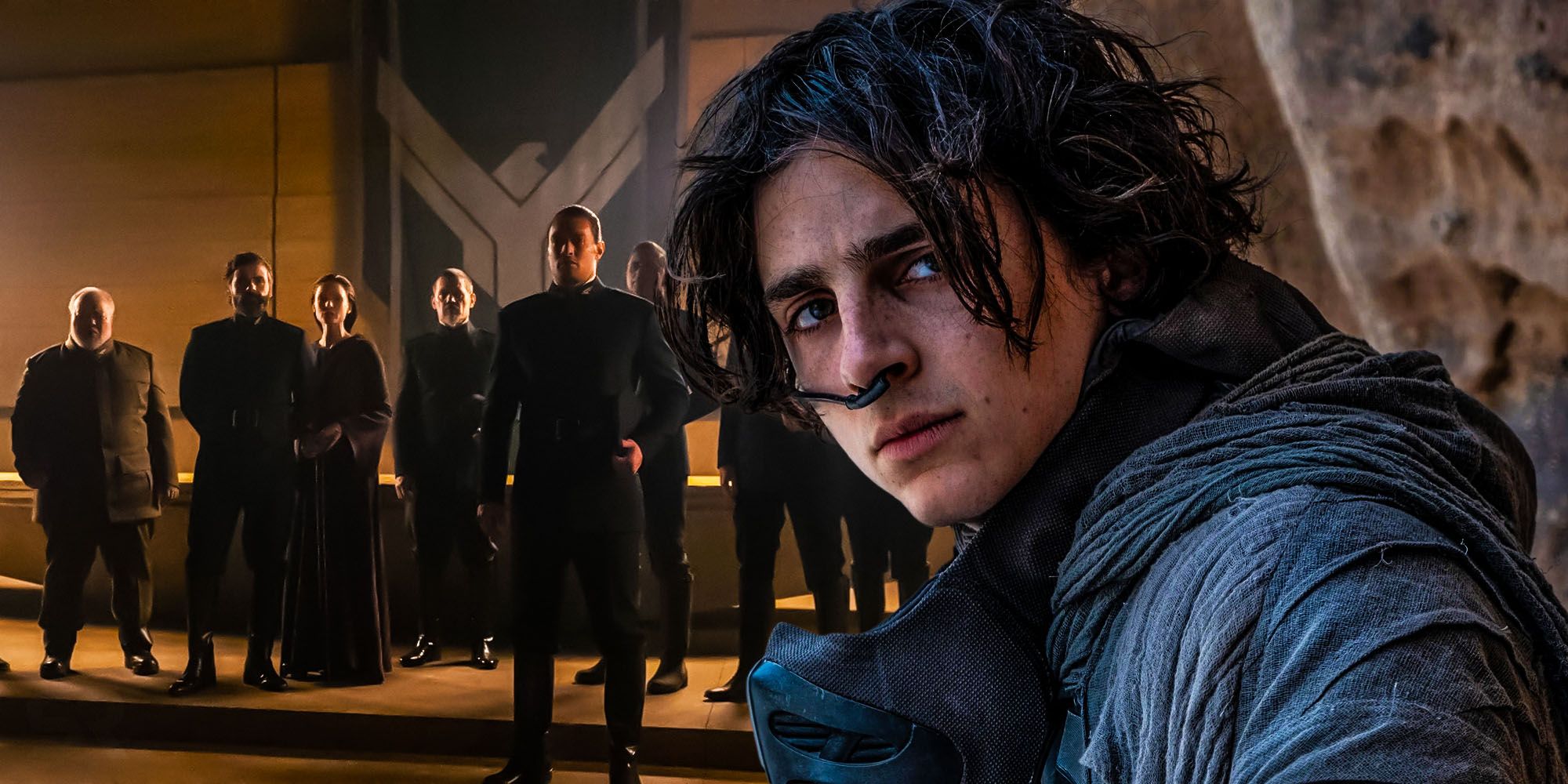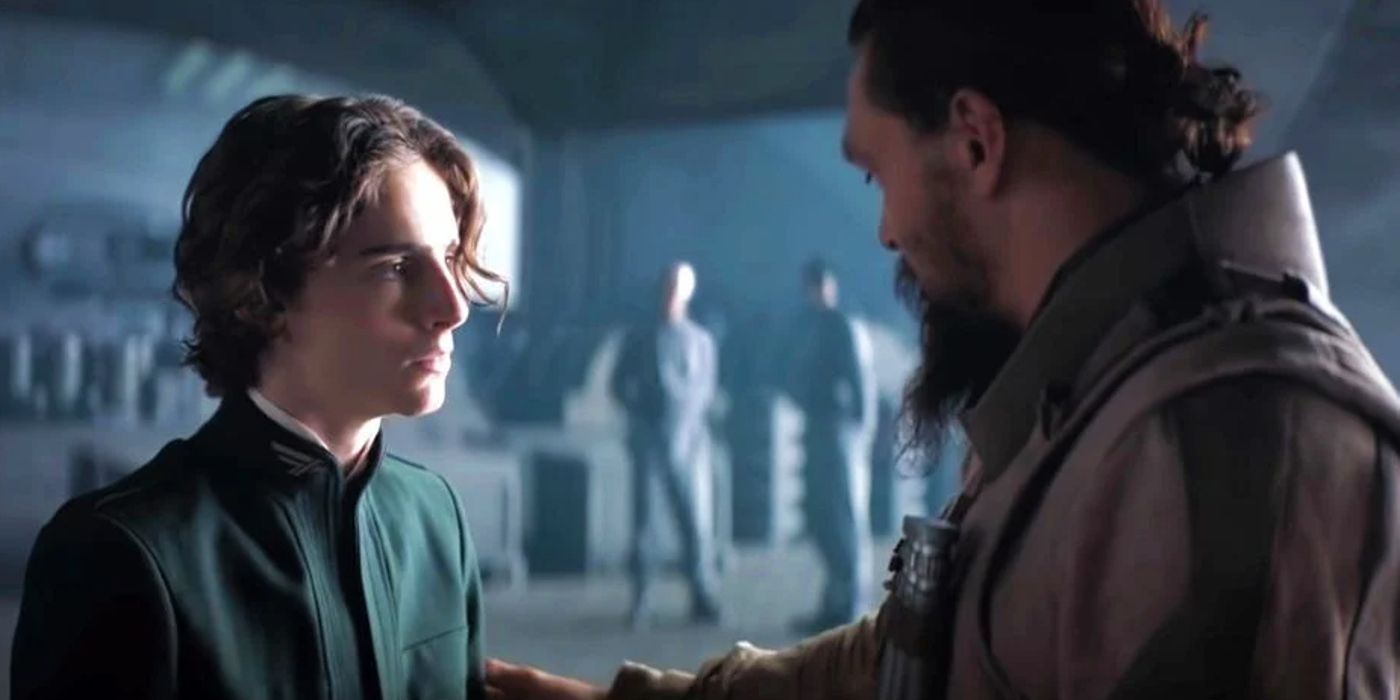Denis Villeneuve's Dune contains one small, yet important detail that makes House Atreides so much better. The contrast between Dune's House Atreides and House Harkonnen has been established by the sci-fi epic in a plethora of ways, starting from their social-political structure to the way in which the populace views their leader. While the people of Caladan look up to Duke Leto as their leader out of genuine admiration and respect, the citizens of Giedi Prime suffer under a brutal, militarist regime, cowering in fear of their leader, Baron Harkonnen.
While House Atreides is a shining example of a monarchy that operates on humane ethics, there is a small, yet important reason why their solidarity emerges as innately genuine. The relationship between Paul and Duke Leto assumes the centerfold in this regard, highlighted beautifully in the scene in which the duo have a heart-to-heart. Not only is the conversation between father and son honest and grounded in nature, but the clear display of pride and affection Leto shows for Paul helps establish a trope rarely seen in films as a whole, especially in a vast-scale science fiction saga.
What sets House Atreides apart is the way in which the men engage and interact with one another, displaying admiration, affection, and pride for one another via physical touch. This heartfelt portrayal of male relations and friendships is refreshing to behold, as it goes to show how attuned the men of Caladan are to their emotions, reinforcing the familial aura encircling them. This, of course, shapes Paul’s character in distinct ways, especially in the way in which the people of Caladan's House Atreides trust him enough to rest their dreams and hopes on him, displaying it with subtle physical gestures that affirm their faith in him. At every point, Paul knows he is loved and cared for, especially when Leto touches his face affectionately, while men in general display their admiration and pride by gentle pats on the shoulder or placing their hands on each other’s backs.
The most beautiful portrayal of the depth and purity of male friendships in Dune is the bond between Paul and Duncan, who immediately hug each other on meeting during the first half. The closeness of their bond is backed up by actions in a fairly solid manner, adding special weight and significance to Duncan Idaho’s eventual sacrifice, as he does not think twice before jumping into the heart of death to protect his dear friend and the last hope for House Atreides. This is in stark contrast to the utter lack of physical touch among the Harkonnens, who maintain a cold distance amongst themselves while cowering in fear from the Baron. Furthermore, the only points of physical contact made by the Harkonnens are during acts of cruel violence, while the rest of the time is spent plotting shrewdly for capitalistic profits.
While House Atreides also wishes to control the flow of the spice melange, their core aim is to expand their influence enough for the people of Caladan to prosper, whilst also deeply caring about the fallen men during battle. On the other hand, the Harkonnens keep their populace in abject squalor, making no efforts to better their condition, focused solely on reaping profits for themselves. Dune establishes this difference in many ways, but the presence of genuine, connected male friendships and camaraderie and the display of affection via physical touch/gestures only serves to highlight this subtly, yet beautifully.
Although there is a scarcity of films that touch upon this aspect in a wholesome manner, The Lord of the Rings is a wonderful example of how this is translated well to screen. A seminal reason why audiences are invested in Frodo and Sam’s bond, along with that of many male characters in the film, is the way in which they openly weep, hug, and show affection for one another. Dune manages to accomplish the same to a great extent, potentially setting up the stage for making reunions and character dynamics more heartfelt and hard-hitting in the sequel movie Dune 2.


